News
President Akufo-Addo cuts sod for reconstruction and dualisation of Adenta-Dodowa road
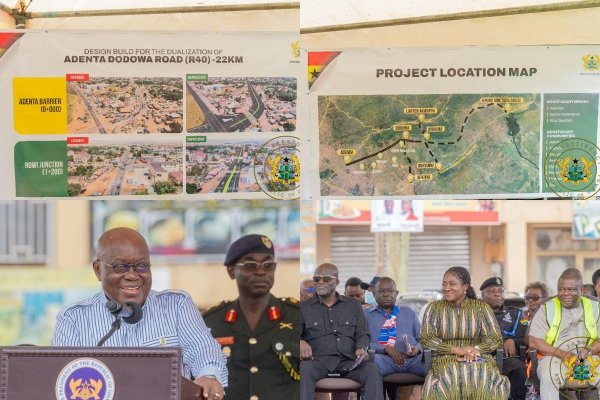
The President of the Republic, Nana Addo Dankwa Akufo-Addo, as part of government’s determined pursuit to transform the road infrastructure of the nation, has on Thursday, August 8, 2024, cut the sod for the dualisation of the 22km Adentan to Dodowa road project.
Originally reconstructed in 1998, this vital inter-regional road, connects Ghana’s capital to the Eastern and Volta regions and beyond, thus forming part of government’s comprehensive strategy to enhance the main trunk roads of the country.
This comprehensive strategy also includes ongoing works on the dualization of other key roads such as the Accra-Kumasi Highway, Accra-Cape Coast road, Tema-Aflao Road and Tema Akosombo road, which are being constructed to reduce travel times, lower vehicle operating costs and significantly improve road safety.
Aside the dualization of the 22km section, the project, being undertaken by Messrs Oswald Investments Limited, an indigenous Ghanaian company, will be managed by the Ministry of Roads and Highways with the Ghana Highway Authority serving as the engineer, also includes the provision of service lanes on both lines of the main carriageway where required, provide adequate drainage structures, walkways and lay-bys along the urbanized sections.
Speaking at the well-attended sod-cutting event, which featured the Chiefs and hundreds of enthusiastic people of the area, President Akufo-Addo said this latest effort will be a welcome addition to the impressive strides by his government in the road network nationwide.
He said, some 12,830 kilometres of road have been completed nationwide.
This includes 2055 kilometres of road and the construction of four interchanges in the Greater Accra Region, in addition to the construction of three bridges in Communities 12 and 19 in Tema, as well as in Taifa.
The President added that “In addition to these completed projects, major road works are ongoing in the greater crowd region, including the dualization of the Achimota-Ofankor road, which will be expanded to a 10 lane facility with 4 interchanges at Amasaman, Pobiman, Medie and Nsawam. The project is 62% complete.”
He also mentioned the construction of the 30km Dome-Kitasi road, currently at 26% complete, the construction of the 64 km Tema Akosombo road, with sections to be dualized to six lanes and with interchanges at Ashaiman roundabout and Asutuare, which is 10% complete, the construction of the Obetsebi Lamptey Interchange Phase II, which is 87% complete, the construction of the Flower Pot Interchange across the motorway, which is 90% complete, and the dualization of the 5.7 km School Junction to Motorway road, which is 98% complete.
President Akufo-Addo also touched on the resumption of work on the construction of the Tema-Aflao road, which provides four interchanges at Kpong, Savannah, Dahwenya and Ningo Junction, the dualization of the 14.6 km Coastal road Phase I, with major bridges across the Kpeshie, Songhor, Ablekeshie street to address perennial flooding and the dualization of the 9.7 km Coastal road Phase II, Nungua to Tema, involving the construction of a 3-tier Nungua Interchange and a railway bridge towards Sakumono, which were suspended due to the debt restructuring exercise.
The President urged the contractor to implement necessary traffic management measures to minimize inconveniences to commuters in pedestriants during the construction period.
Some projects which have been completed include the iconic 4-tier Pokuase Interchange, the first of its kind in Ghana and West Africa, and the second in Africa. This project also included the construction of 12 km of local roads.
The others also include the Tema Motorway Interchange Phase One, and Obetsebi Lamptey Phase One, the dualization of Aviation Road, Otano-School Junction Road and Nana krom road, totalling 12.8km. The partial reconstruction of selected roads in Ga North, Dome-Kwabenya and Ga Central, covering 24km and the partial reconstruction of selected roads in Teshie and Nungua, covering 9 km, as well as, the surfacing of the Bobobokor area roads in Ga West, covering 25 km are all progressing steadily.
News
‘Thousands of Ghanaian women suffering from Obstetric Fistula’
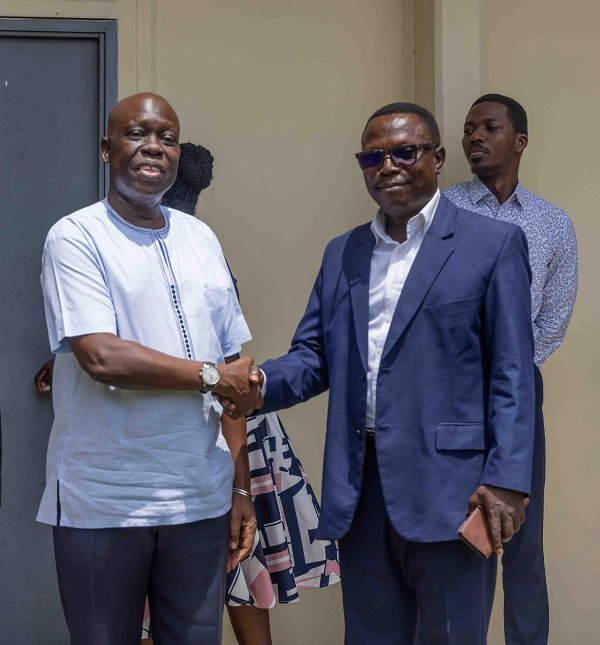
Thousands of Ghanaian women continue to suffer in silence from Obstetric Fistula (OF) due to inadequate access to surgical treatment, the United Nations Population Fund (UNFPA) has revealed.
Dr Wilfred Ochan, UNFPA’s Country Representative, disclosed that over the past decade, Ghana has accumulated a backlog of more than 12,000 untreated cases, despite recording an estimated 1,300 new cases each year.
He made the remarks during a visit to the New Times Corporation (NTC) in Accra to mark the International Day to End Obstetric Fistula (IDEOF).
“Only 1,000 repairs have been done in 10 years. That leaves thousands of women isolated, in pain, and excluded from society due to a condition that is both preventable and treatable,” Dr Ochan said.
He stressed the need for greater investment in surgical capacity, public awareness, and partnership, especially with the private sector— to accelerate Ghana’s efforts to eliminate the condition by 2030.
Obstetric Fistula results from prolonged or obstructed labour without timely medical care, causing a hole between the birth canal and bladder or rectum, leading to continuous leakage of urine or faeces. The consequences include stigma, chronic incontinence, and often, the death of the baby.
To help close the treatment gap, the UNFPA is working with health institutions including the Komfo Anokye and Cape Coast Teaching hospitals to scale up surgeries and outreach.
“We must not allow women to suffer lifelong trauma for simply trying to give life,” Dr Ochan urged.
The Managing Director, Mr Martin Adu-Owusu, pledged NTC’s support in raising public awareness and promoting maternal health initiatives.
“We are ready to collaborate with you to ensure that maternal deaths and issues affecting women come down to the barest minimum so that together we can achieve the UN goal to eliminating Obstetric Fistula by 2030,” he said
By Esinam Jemima Esinam
News
Inflated prices of Abaya, Jalabiya on Eid-al-Adha celebration
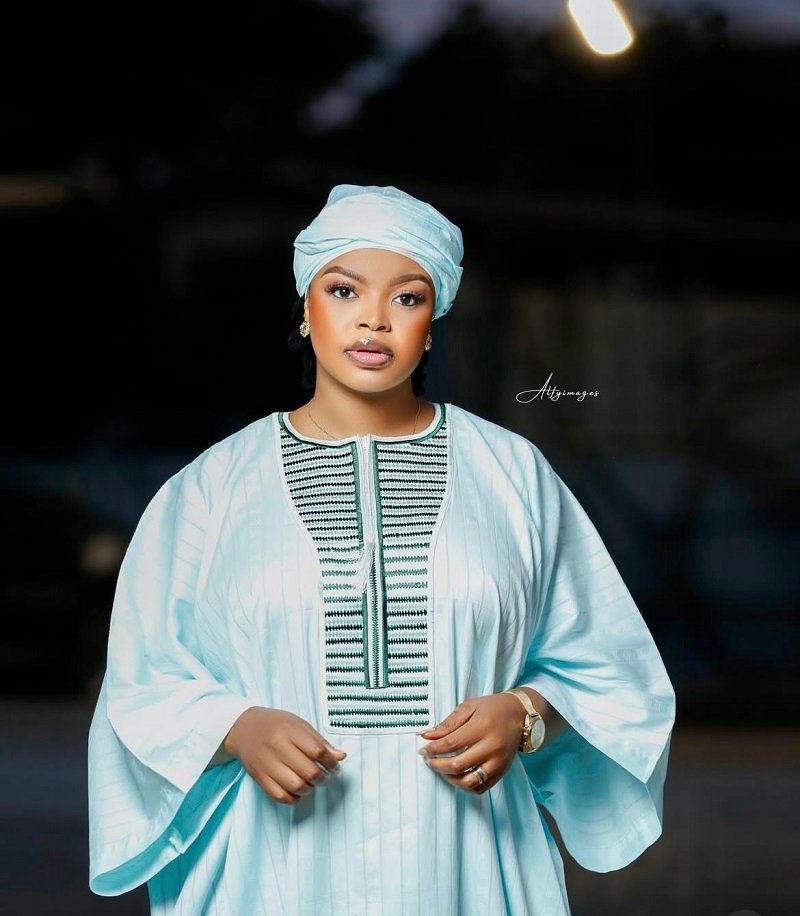
Muslims in Ghana and all over the world yesterday observed the Eid-al-Adha celebration.
It falls on the first day of Shawwal, the 10th month of the Islamic calendar and is celebrated by Muslims to mark the end of the month-long dawn-to-dusk fasting of Ramadan.
The build up to yesterday’s edition was characterised by a high demand for traditional Islamic attire here in Tamale, leading to a sharp rise in prices.
Checks by The Spectator from the various markets in the Tamale area revealed that prices for popular outfits like the Abaya, Jalabiya, and Kaftan have skyrocketed within the period.
Although there is no prescribed outfit for the celebration, many Muslims in Tamale traditionally choose modest and loose-fitting garments that reflect Islamic values.
Abayas and Jalabiyas often imported from Turkey, Dubai, Egypt, and Northern Nigeria have become particularly the most sought-after attires, resulting in the price hikes.
Currently, prices for men’s attire range from GH₵250 to GH₵800 while women’s outfits are selling from GH₵350 to GH₵1000.
Children’s garments are also not left out of the pricing craze. Bargaining for the youngsters starts from GH₵150.
Hajia Naila Abdul Karim, owner of ‘Cover with Style,’ confirmed a significant surge in sales in the holy month.
“Each day, more than 20 people, mostly women walk into the shop. We also send over 40 parcels daily to customers across the country,” she stated.
She attributed the price increases to the cedi’s depreciation and a recent shortage of Turkish imports, noting that most of her stock now comes from Dubai.
Hamdia Kamil, a loyal customer, shared her experience: “Two years ago, I bought an Abaya for GH₵350. This year, it’s GH₵650. I had no choice because it’s a special occasion and I want to feel good. Still, I hope the dresses are made affordable so others can also celebrate in style.”
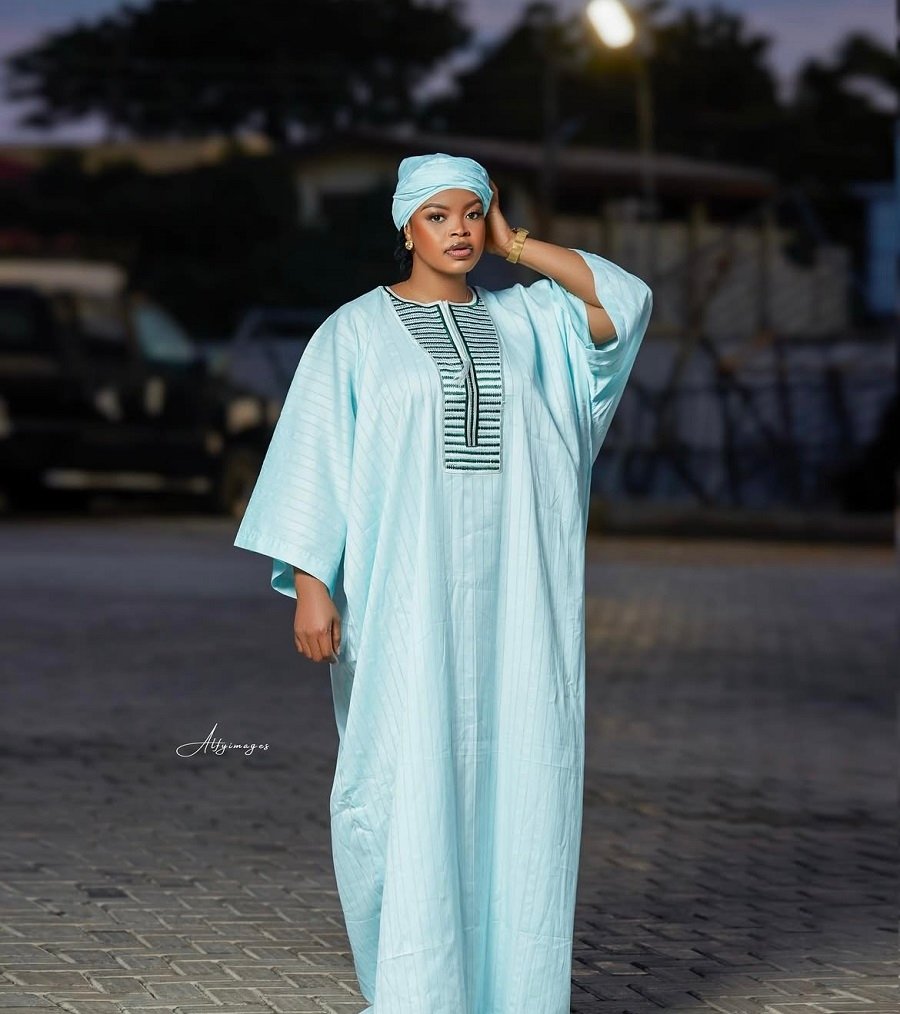
At Baby Last Closet in Sakasaka, another fashion outlet, prices for women’s outfits range from GH₵350 to GH₵1,300, while men’s attire goes from GH₵250 to GH₵1,000.
“Some customers complain about the cost, but because it’s Ramadan, many still go ahead and buy,” said the shop owner.
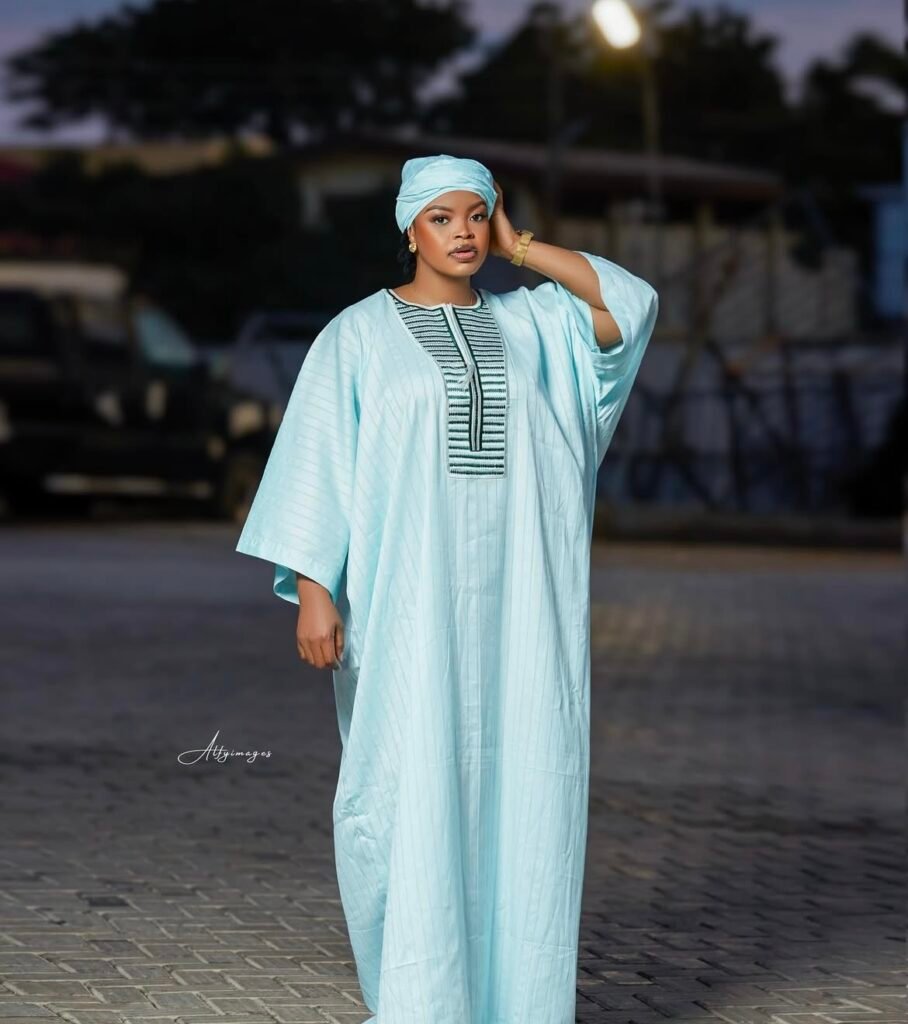
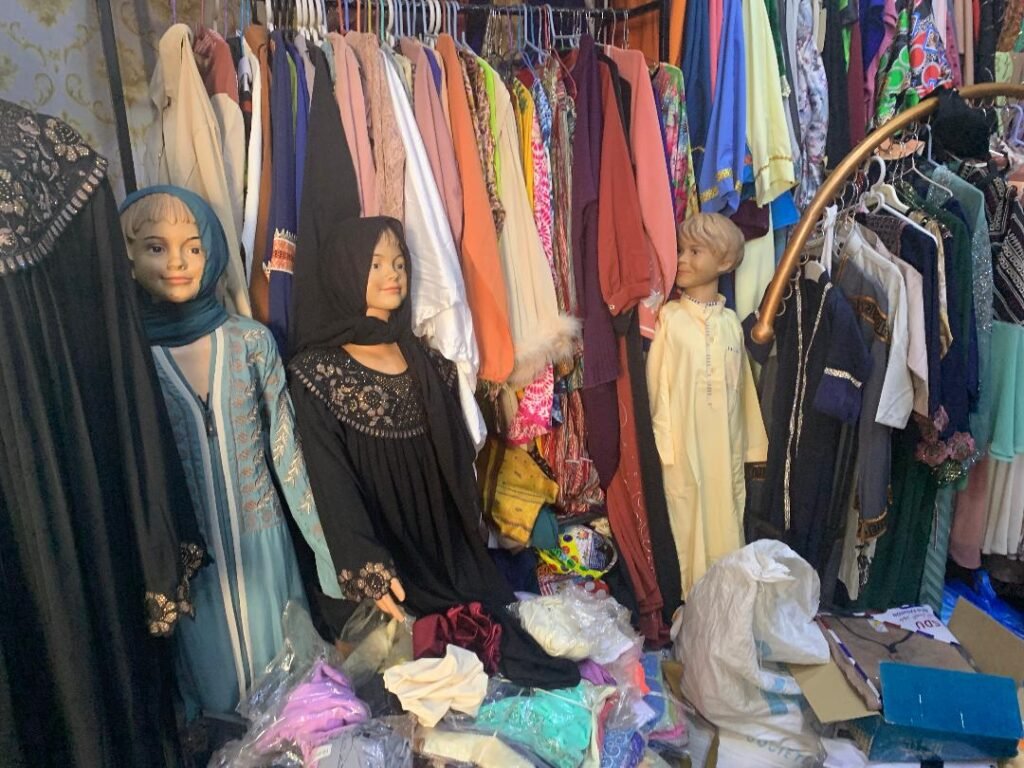
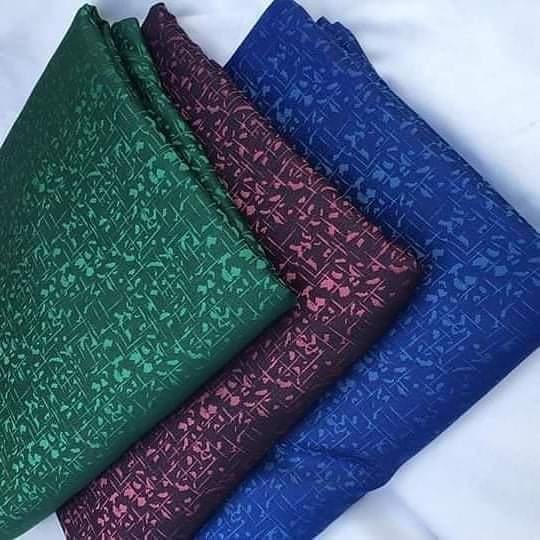
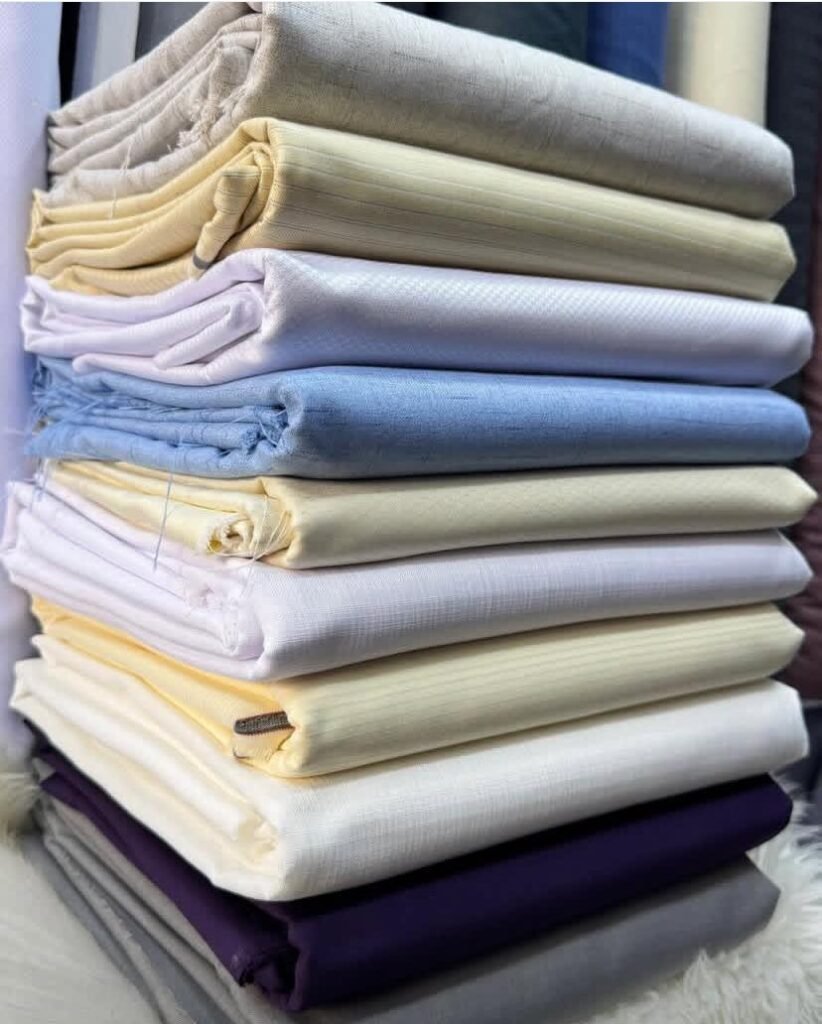

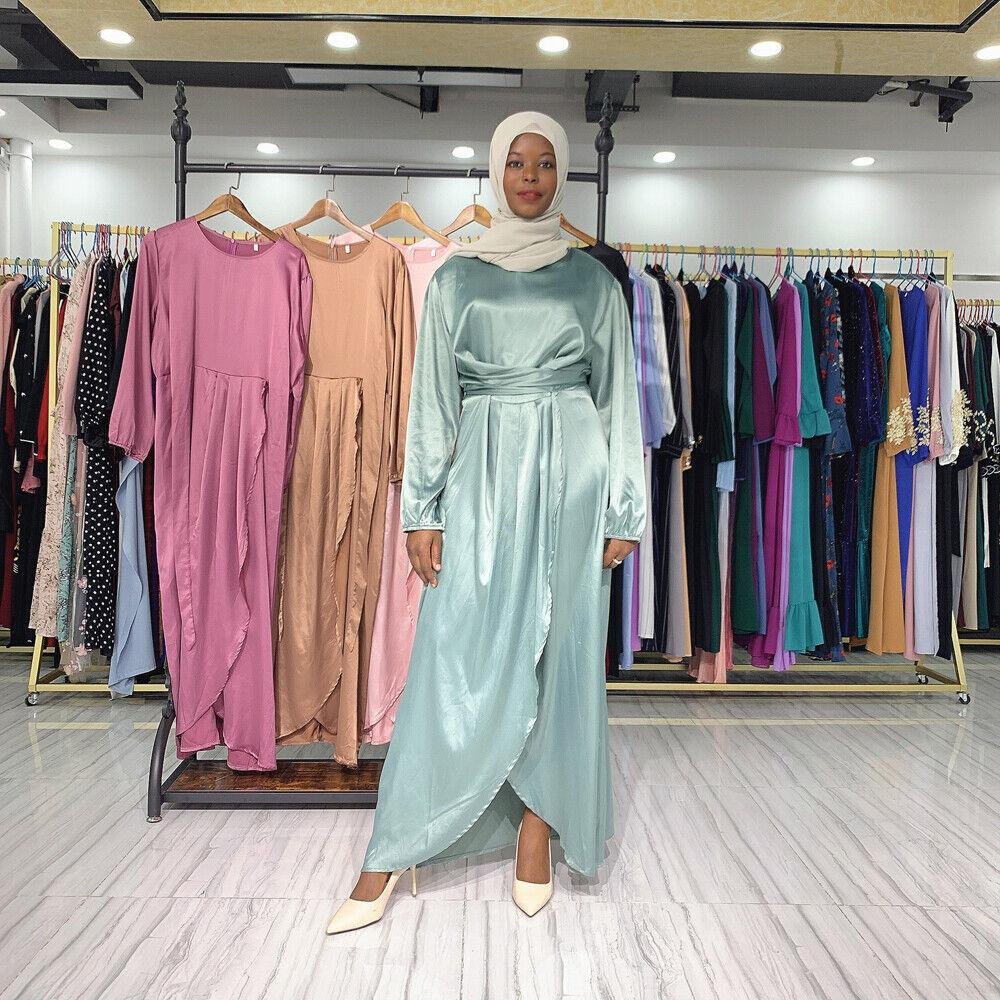
Similarly, Mandy’s Haven at Zogbeli sells exclusively for Eid celebrations, dealing in high-end Abayas, Jalabiyas, and Kaftan materials. Prices there reflect quality and origin, with female attire ranging from GH₵450 to GH₵5,000, and kaftan fabric sold at GH₵200 per yard.
For many, including resident Iddrisu Suale, the holy month remains a sacred period despite the economic pressures. “Things are expensive this year, but I still want to make the day special for my children. I plan to get them Abayas and Jalabiyas from Egypt,” he indicated.
Despite the bustling nature of preparation and the high cost of goods, resident expressed optimism of having a good time in observing the deep spiritual significance of the occasion.
Story & photos by Paul Dery











